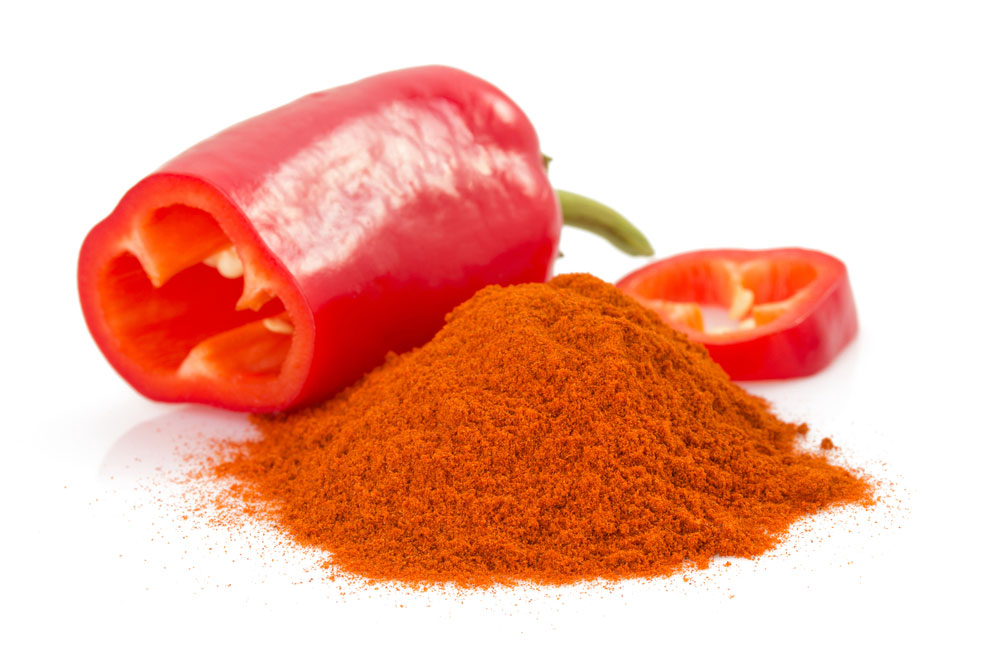Paprika is a popular spice that is made from dried peppers of the plant capsicum annuum.
It is available in many varieties and colors such as red, orange, and yellow.
It is used in many dishes across the world, to enhance the flavor and taste. In particular, it is more commonly used in rice dishes and stews.
Being a rich source of vitamins, iron, and minerals, regular consumption of paprika comes with many health benefits.
Let us look into some of the benefits that are backed by science.
It may protect your eyes
Paprika packs in numerous nutrients that are vital for your eye health. This includes vitamin-E, Vitamin-A, lutein, and zeaxanthin.
Several studies indicate regular intake of these nutrients reduced the risk of age-related macular degeneration and cataracts.
Antioxidants such as lutein and zeaxanthin help to reduce free radical damage to the eyes.
A big study which involved around 1800 women found that those who regularly consumed foods rich in lutein, and zeaxanthin effectively reduced their risk of developing cataracts by nearly 32 percent over those who consumed only a minimal amount.
It may reduce inflammation
Some varieties of paprika are rich in a compound called capsaicin.
This compound has a unique nature of attaching itself to the receptors of nerve cells in order to reduce inflammation and pain.
This unique property of capsaicin made it a popular ingredient in many pain-reducing topical creams that is used for inflammatory conditions such as arthritis, nerve damage, and digestive issues.
It may improve the level of good cholesterol
Healthy levels of good cholesterol or HDL is associated with improved heart health.
Interestingly certain varieties of paprika contain capsanthin, a type of carotenoid that is well known to improve the levels of HDL.
Carotenoids also have the ability to reduce the total cholesterol and LDL cholesterol, which is a type of bad cholesterol that increases the risk of heart attack and stroke.
It may protect you from certain types of cancer
One of the primary contributors to the development and growth of cancer cells is oxidative stress or free radical damage.
Our body naturally releases free radicals through metabolism. When these free radicals are left unattended, it can lead to various ailments and diseases including cancer.
Paprika contains several compounds that are antioxidants, which includes beta carotene, lutein, and zeaxanthin.
All of these compounds are believed to fight oxidative stress and effectively reduce the risk of certain types of cancer.
A large study which involved around 2000 adult women found that those who have high levels of beta carotene, lutein, and zeaxanthin in their blood have reduced risk of developing breast cancer by nearly 35 percent.
It may help to regulate blood sugar levels
There are few preliminary studies that indicate capsaicin help to regulate blood sugar levels and manage diabetes better.
Capsaicin is believed to improve insulin sensitivity in body cells and help it effectively absorb glucose, which directly results in reduced levels of blood glucose.
This belief is further strengthened by a 4-week study that involved 36 adults, which found that diet rich in chili pepper effectively reduced blood insulin levels significantly. Reduced levels of insulin in the blood is a good indicator or blood sugar being under control.
It may protect you from anemia
Iron deficiency is one of the major contributors to anemia.
This is because iron is a vital part of hemoglobin, a type of protein in red blood cells that helps to carry oxygen to various organs in the body.
Paprika being a rich source of iron helps to get over iron deficiency and improve hemoglobin levels in the blood, which helps to keep anemia at bay.
Paprika is also a good source of Vitamin-E, a vital nutrient that helps to repair the damaged red blood cells, which again helps to reduce the risk of anemia.
